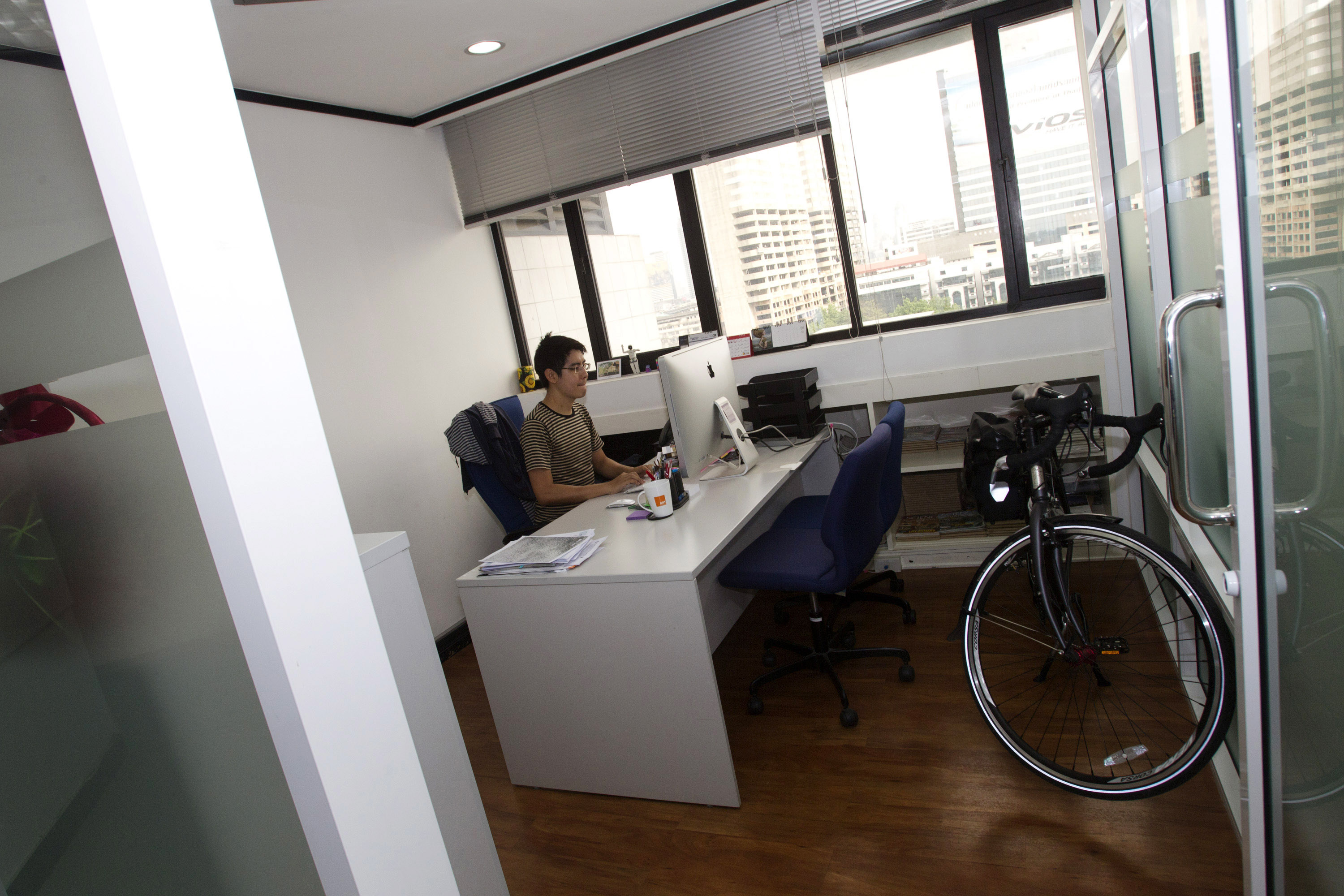Getting a new job can feel wonderful – it’s a new relationship where you like them, they like you, and everything is rainbows and puppies. Then you get a month or two in, and you start to wonder what exactly you joyfully jumped into.
Videos by Rare
RELATED: 10 tips for preparing to start a brand new job
Here are some tips on dealing with the new job blues.
1. Set small goals
You’ve already proven yourself by landing the job. Try not to put huge amounts of pressure on yourself immediately. That can feel crushing, and spoil that new job buzz quickly.
Set small goals – figure out the basics of your job and build a good foundation on which you can start to take on bigger projects.
2. Find a mentor
There’s a lot to learn at a new job — not just the work, but the policies, procedures, building layout, the commute and the co-workers.
Try to find a friendly face to show you the ropes – a companion and guide. Ideally, this person is on the same level as you and has been in the company for at least a year, so they know the people and the personalities.
3. Dress the part
Company dress codes can feel daunting and controlling at times. But adhering to them reflects how the employee respects their job. Being well-dressed will give you a sense of purpose and confidence.
4. Personalize your space
A new, unfamiliar environment can seem cold and uninviting. Keep a few personal items such as souvenir from a trip, a memento, a photo or your favorite stationery on your work desk, while adhering to the general decorum. Soon, your new office will start feeling like home.
[protected-iframe id=”cd5c8b7c0b16aef870adde33e2f6460d-46934866-94750331″ info=”//giphy.com/embed/3o84U5xPhrn42WgBJC” width=”480″ height=”282″ frameborder=”0″ class=”giphy-embed” allowfullscreen=”” height=”360″]
5. Assess the situation
List the factors about the new job that are bothering you. It could be the tone of your boss or a colleague, too much work pressure or office politics.
RELATED: 5 ways to stay on budget when you lose your job
If the job is something that fits your career objectives, then take the steps to communicate these issues with your supervisor or the human resources department. However, if there has been a misunderstanding about the job role and it is conflicting with your career objectives, it is best to give up the new role as soon as possible.
6. Keep a journal
It’s easy to focus on the negatives you encounter in a new situation. Try keeping an honest journal of each day, noting the positives and the negatives you encounter. Try to suss out the patterns behind each type of encounter and figure out how you can change the results of the negative encounters.
7. Don’t assume
It’s easy to jump to the conclusion that it’s you. Or it’s the job. Or it’s both.
Don’t jump to conclusions based on one or two encounters. Give yourself time to make an honest assessment of the situation before making any decisions.
8. Transition blues are normal
These are legitimate concerns you’ve got about this new job. It’s perfectly normal to have these concerns, and you are going to feel shockwaves for some time.
It’s no small feat to become accustomed to a new routine, workplace, or job.
[protected-iframe id=”684de46a4e6c47c83c6643a4c74bc227-46934866-94750331″ info=”//giphy.com/embed/3ohzdMMy6S83I0g5he” width=”480″ height=”320″ frameborder=”0″ class=”giphy-embed” allowfullscreen=”” height=”360″]
9. Arrange a familiarization visit
One way of heading off some of the transition blues is making an appointment to come into the office before your first day. There’s usually a few days between being hired and starting, so see if you can come in and spend an hour getting a tour of the building and meeting people. Anything you can do to make you more comfortable to start will help.
RELATED: Great perks and happy employees — these are the best companies to work for in every state
10. Use your free time wisely
Once the work day is over, pursue your own interests. Take advantage of your free time to let go of on-the-job stress, fend off brain atrophy, and cultivate your interests. Take an improv class, start a book club, blog, anything to remind yourself of the fact that you are a person, not just an asset.



